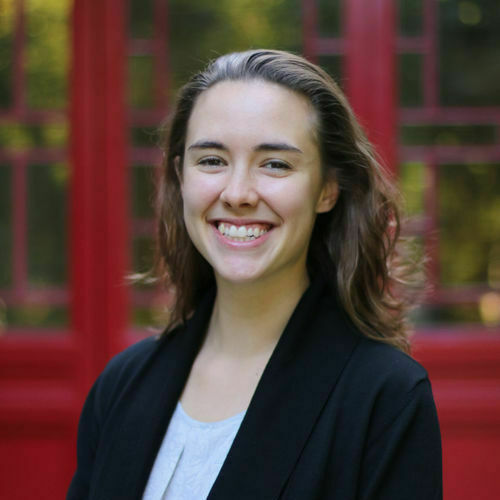Careers
Study Anthropology. Do Anything.
What can I do with an Anthropology major?
Anthropology majors learn global, cultural, and holistic perspectives that are vital for every career path. Because they engage directly with people in communities throughout the world, in bioanthropology labs, archaeological sites, and ethnographic fields, the methods anthropology majors learn apply to cutting-edge careers from international health fields to user experience research. Anthropologists excel in transnational organizations, forensic institutes, private companies, and medical centers and beyond. Our anthropology alumni truly study everything and do anything
Skills you'll learn
- Effective communication
- Strong writing
- Collaborative teamwork
- Cross-cultural competency
- Critical thinking and analytical reasoning
- Experience applying knowledge to real-world settings
- Qualitative research, design thinking, and user experience methods
- Quantitative analysis, forensic research, and laboratory methods
- Ethical judgment and decision making
- Ability to analyze and solve problems with people from different backgrounds

Emily Vincent ’18
Yenching Scholar, Peking University, Beijing, China
“As an international student at Peking University, I use anthropology on a daily basis," says Emily Vincent, who majored in anthropology and Chinese at Notre Dame. “Studying anthropology taught me how to dig deeper than the apparent cultural differences to find the underlying human experience that connects us all. It showed me the importance of evaluating situations from multiple cultural perspectives and the validity of viewpoints that may seem strange or foreign at face value."
“Anthropology equipped me to ask better questions about myself and the world while preparing me to seek the answers through my own experiences.”
-
Emily Vincent ’18
Yenching Scholar, Peking University, Beijing, China
“As an international student at Peking University, I use anthropology on a daily basis," says Emily Vincent, who majored in anthropology and Chinese at Notre Dame. “Studying anthropology taught me how to dig deeper than the apparent cultural differences to find the underlying human experience that connects us all. It showed me the importance of evaluating situations from multiple cultural perspectives and the validity of viewpoints that may seem strange or foreign at face value."
“Anthropology equipped me to ask better questions about myself and the world while preparing me to seek the answers through my own experiences.”
-
Daniel Schmitt ’11
Orthopedic Surgeon
Daniel Schmitt, an anthropology and biology major, relies on his liberal arts education to connect with his diverse patient base and treat them comprehensively.
“My anthropology major has been invaluable thus far in my career as a physician,” Schmitt says. “Working at a hospital that largely treats underserved communities with socioeconomic backgrounds much different than mine, my anthropology experience has allowed me to appreciate the diverse worldviews of those I care for, enabling me to give the patient and their families the best care possible.”
-
Madeline Boyer ’09
Researcher and Facilitator, KPMG Innovation Labs
“Business is my object of study, but anthropology has always provided that lens, the way in which I look at the business world. Anthropology gives me that different way of looking at it than most people do,” says Madeline Boyer, an anthropology and business major who went on to complete a Ph.D in Anthropology at the University of Pennsylvania.
“It’s not just that I know different things because I took liberal arts courses, but I also think differently. I ask different types of questions and I challenge us to question assumptions because I have that much broader experience from my liberal arts background.”
-
Kyle Bocinsky ’08
Director of the Research Institute and William D. Lipe Chair in Research at the Crow Canyon Archaeological Center
After graduating from Notre Dame, Kyle Bocinsky went on to get a Ph.D. in anthropology and now works as a computational anthropologist interested in human responses to environmental change.
“The research opportunities open to Notre Dame undergraduates are phenomenal, especially in anthropology,” he says. “I don’t know of any place else where I would have been able to work across multiple departments, have access to state-of-the-art labs, and learn the analytical methods that are so important to the research I do now.”
-
Stephanie Sluka Brauer ’97
Global Funding Director, Space for Giants
Anthropology alumna Stephanie Sluka Brauer serves as Space for Giant's Global Funding Director, applying the experience she gained from working at the juncture of philanthropy, aid funding, and international development over the last 30 years. She has overseen funding efforts for organizations working across Africa, Asia, Latin America, and the Middle East and ran her own NGO, Spheres of Exchange, to support refugee and immigrant groups in the U.S.
97% of recent Notre Dame Anthropology majors found full-time employment, enrolled in graduate school, entered service programs, or launched independent projects within six months of graduation.
Note: Outcomes data comes from First Destination reports, a survey of recent graduates conducted by the Notre Dame Center for Career Development and Office of Strategic Planning and Institutional Research. Status is known for more than 90% of each graduating class.
Independent projects include activities such as writing a novel, making a film or fine arts project, completing an internship, traveling the world, caring for a family member, etc.
Further Reading
American Anthropological Association’s Careers in Anthropology
The National Association for the Practice of Anthropology's Career Mentorship Program
Consortium for Practicing and Applied Anthropology (COPAA) career resources
Society for Applied Anthropology's Career Listings
What can I do with this major: anthropology and archaeology
How an Anthropology Course Can Prepare Premed Students for Patient Care
Anthropologist Ranks Among Best Jobs of 2020 - US News and World Report Money